Ad Blocker Detected
Our website is made possible by displaying online advertisements to our visitors. Please consider supporting us by disabling your ad blocker.
16. Medicate your plants with the aspirin
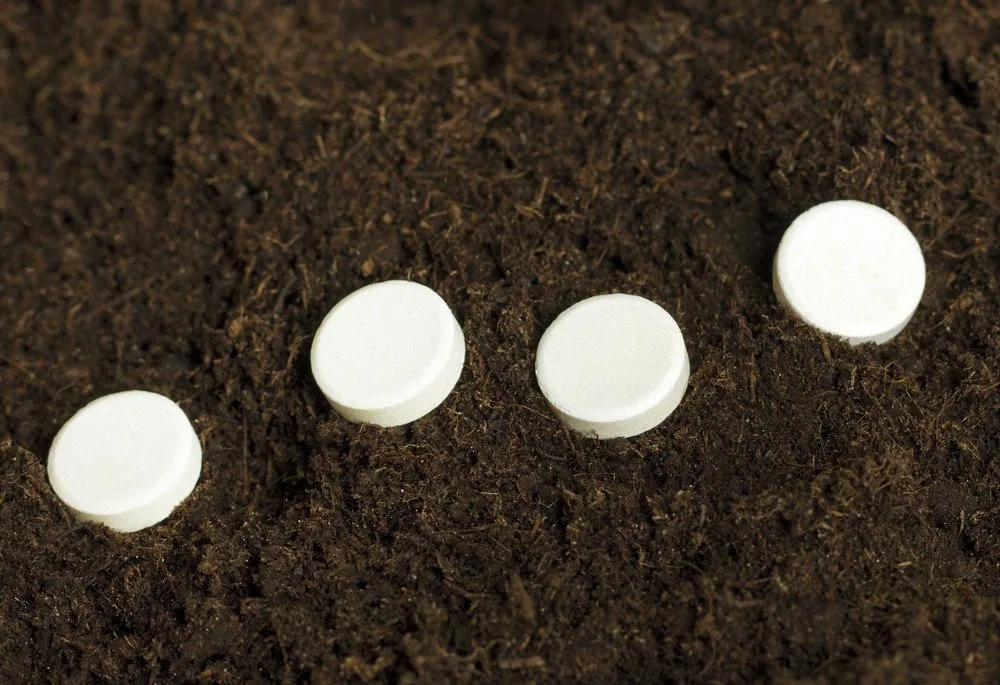
Aspirin is often tossed into flower vases to increase the life of cut flowers.
But it has been found that a dose or two of aspirin can make the plants more disease resistant.
The salicylic acid in aspirin is credited with priming plants to fight against bacterial infections and insect infestations.
The reaction is similar to that triggered by Messenger, a commercial product used to prepare plants against pests and infections.
Dissolve one or two aspirin pills in a gallon of water and spray it on the plants once every 2-3 weeks. Do not overdose. Too much of aspirin can damage the plants.
17. Get rid of aphids with soap and water
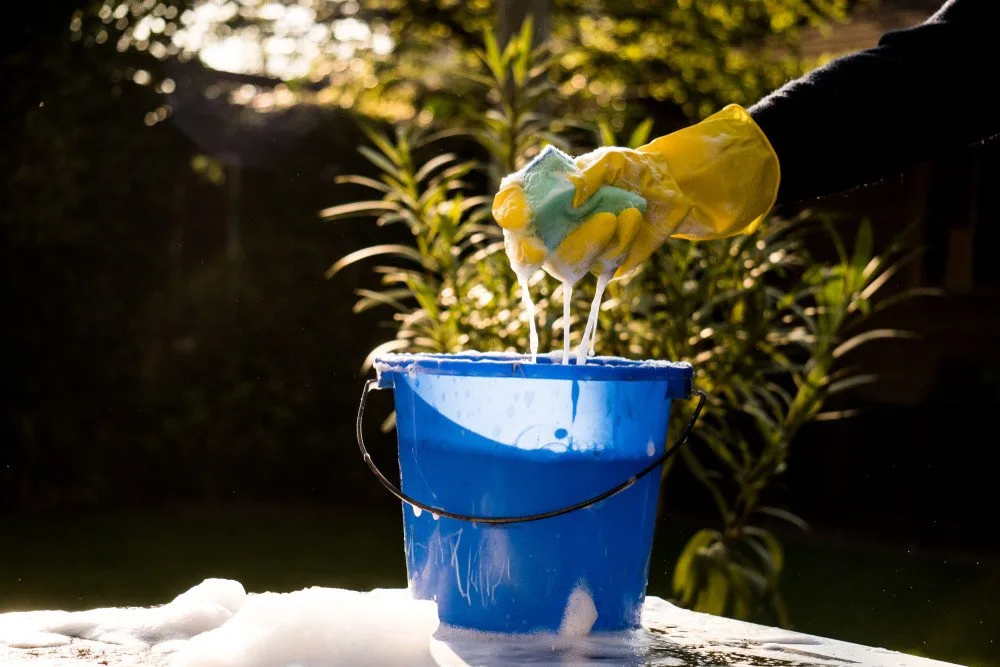
These sap suckers can colonize your plants in no time with the help of the ants who like to milk them. They multiply fast, so action should be taken as soon as possible.
A nice bath with soap and water will take care of mild infestations.
The oil-cutting formula of dish soap comes in handy here to remove the waxy coating on the aphids, making their soft bodies vulnerable to dehydration.
Add two tablespoons of high-suds dish soap in a gallon of water and mix well. Use this mixture to spray the infested plant, taking care to spray under the leaves too.
18. Let Neem protect your plants from pests
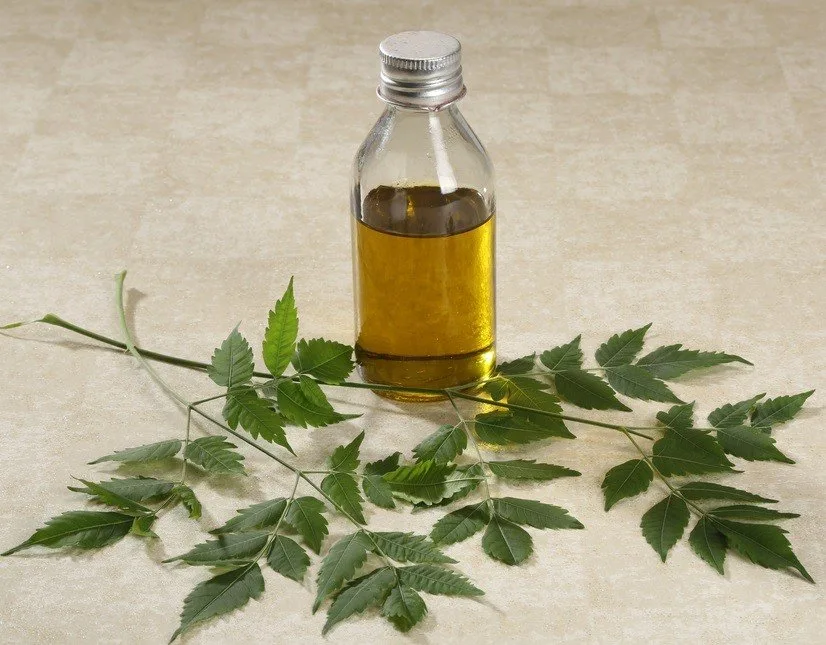
Neem oil extracted from the seeds of the Neem tree is the best way to keep your edibles safe from pests.
It acts more as a repellent and preventive than a contact poison.
Neem oil interferes with feeding as well as the development process of the insects, making them incapable of proliferating.
To make a spray, add a few drops of any detergent to a quart of warm water and then mix in a teaspoonful of Neem oil – such as this one.
Shake well and spray liberally on the foliage, drenching the plant and the surrounding soil. Use within 8 hours of preparation.
Repeat the application once every week.
19. Bring in some guests to feed on the pests
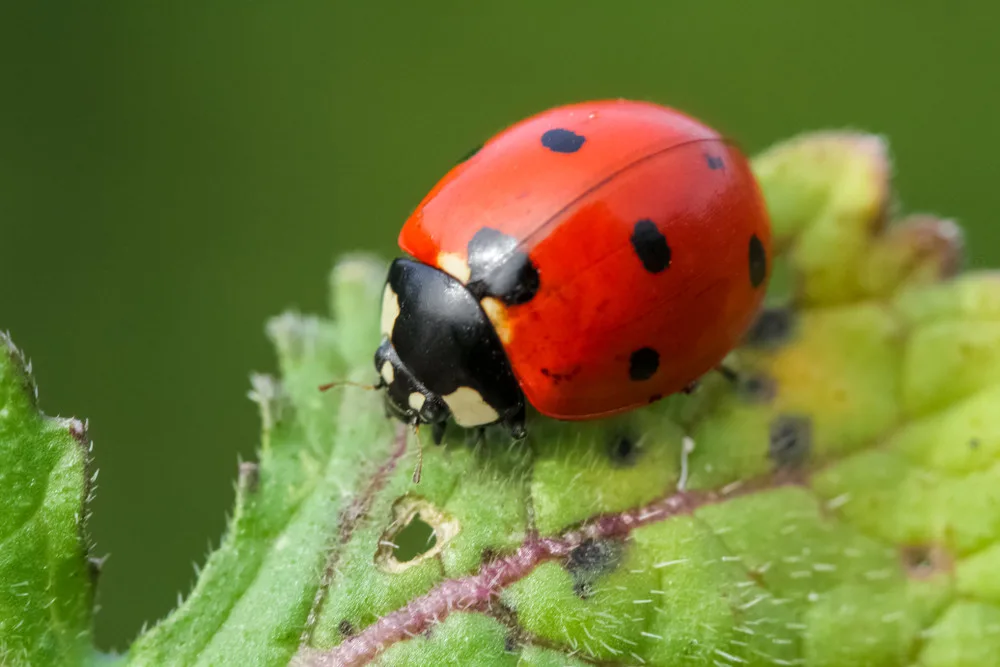
One or two pests in the garden may not do much harm, but an army of them can decimate lush growth within a few days.
Keep the pest population under control by introducing natural enemies.
One way to do it is by buying aphid eaters like ladybug beetles and Lacewings from garden supply stores or online.
To complement this, grow some plants like clover and yarrow and herbs such as mint and fennel that these beneficial insects love.
20. Use cola as insect traps
When you drink cola, leave some in the bottle to be used as an insect trap.
Hang up the cola bottles from fruit trees bothered by insect pests. Insects will enter the bottle to drink the sweet liquid and perish there.
Sugar syrup and molasses, with or without borax, can be used in the traps as well. Since these traps can kill pollinators as well, they shouldn’t be used during the flowering period.
21. Control ants in the garden with borax and honey
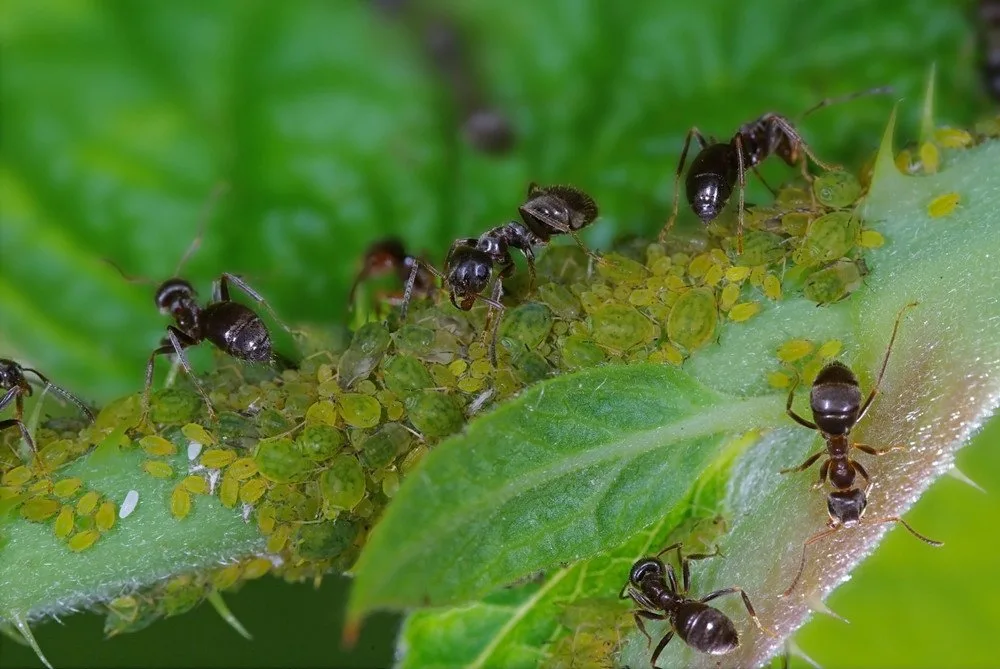
Ants by themselves may not do much damage to a garden unless they make large-scale anthills and tunnels, but their aphid farms can do quite a bit of damage.
Ants have a vested interest in these soft-bodied pests that suck plant juices and secrete the honeydew cherished by the ants.
The ants carry them to tender buds and growing tips of plants where they proliferate, destroying crops. If you can control the ants you can control the aphids.
To make an organic ant killer, mix honey and borax to form a paste. Sugar syrup or peanut butter can be used instead.
Identify the plants infested with aphids and apply the borax paste around the base of their stems.
Ants going up and down the plant will get dehydrated by consuming the borax. They might even carry some home, causing the destruction of their colony.

